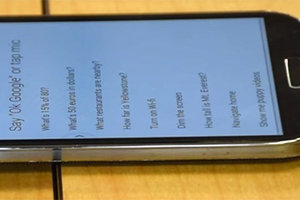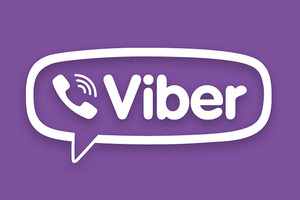Hackers advertising and selling phishing kits via YouTube with secret backdoor
 Cybercrime, like any other enterprise is a business, albeit an illegal one. Apart from targeting individuals, businesses and governments, cybercriminals also cash in by creating, using and marketing malware to other crooks. It appears however, that the age old adage of "honour among thieves" does not apply to cybercriminals these days.
Cybercrime, like any other enterprise is a business, albeit an illegal one. Apart from targeting individuals, businesses and governments, cybercriminals also cash in by creating, using and marketing malware to other crooks. It appears however, that the age old adage of "honour among thieves" does not apply to cybercriminals these days.
Security researchers have uncovered cybercrooks advertising and distributing phishing kits, that come with how-to videos and links to additional information, to wannabe hackers via YouTube. The catch however is that the advertised kits come with a secret backdoor that sends all the phished data back to the author.
Read moreSecret voice commands hidden in YouTube videos could hijack your smartphone
 Researchers have shed light on a worrying loophole that could be used by hackers to take control of your smartphone using its built-in voice recognition software. By burying mangled voice commands within YouTube videos, a team of experts found that they could instruct a nearby device to carry out potentially harmful actions.
Researchers have shed light on a worrying loophole that could be used by hackers to take control of your smartphone using its built-in voice recognition software. By burying mangled voice commands within YouTube videos, a team of experts found that they could instruct a nearby device to carry out potentially harmful actions.
Voice interfaces have become a common feature on modern smartphones, allowing us an extra level of convenience in diary planning, hands-free messaging or just settling pub debates on pointless trivia. Yet while the likes of Siri, Cortana and Google Now have made our smartphones smarter, they have also unwittingly added a whole new level of vulnerability.
Read moreGroups urge FTC to investigate YouTube kids video app
 A coalition of consumer and children security advocacy groups plans to urge federal regulators to investigate a YouTube video app aimed at children that the groups say disregards long-established safeguards limiting advertising to young audiences.
A coalition of consumer and children security advocacy groups plans to urge federal regulators to investigate a YouTube video app aimed at children that the groups say disregards long-established safeguards limiting advertising to young audiences.
The YouTube Kids app blends video programming and ads in ways that deceive children and parents, according to the groups. A letter will be sent to the U.S. Federal Trade Commission on Tuesday asking it to examine whether the app violates rules prohibiting unfair and deceptive marketing practices. Google Inc-owned YouTube is the world's most popular video website.
Read moreGoogle hires Arabic speakers to stop pirate content
 The web search giant has been recruiting moderators around the globe in order to help prevent YouTube from being hi-jacked for propaganda by militants. The search giant will not disclose the number of new staff. To deal with the problem it has Arabic speakers in every time zone now.
The web search giant has been recruiting moderators around the globe in order to help prevent YouTube from being hi-jacked for propaganda by militants. The search giant will not disclose the number of new staff. To deal with the problem it has Arabic speakers in every time zone now.
The 22-minute film of Jordanian pilot Moaz al-Kasasbeh being burned alive was first uploaded to YouTube, where it remained for a number of hours before moderators removed it. However, by that time, images were already being circulated on Twitter messenger. The tactic has had a major effect in helping Islamic State to radicalise new followers.
Read moreGoogle to revamp its products with 12-and-younger focus
 With Google processing 40,000 search queries a second — or 1.2 trillion a year — it's a safe bet that many of those doing the Googling are kids. Little surprise then that beginning next year the tech giant plans to create specific versions of its most popular products for those 12 and younger.
With Google processing 40,000 search queries a second — or 1.2 trillion a year — it's a safe bet that many of those doing the Googling are kids. Little surprise then that beginning next year the tech giant plans to create specific versions of its most popular products for those 12 and younger.
The most likely candidates are those that are already popular with a broad age group, such as search, YouTube and Chrome. Google would not offer a timetable for the rollout. Google wants to be thoughtful about what we do, giving parents the right tools to oversee their kids' use products. So the better approach is to simply see to it that the tech is used in a better way.
Read moreHow to check what Google knows about you?

It's easy to understand why privacy advocates and policymakers are sounding alarms about online privacy in general – and singling out Google in particular. If you use Google's search engine, Google knows what you searched for as well as your activity on partner Web sites that use its ad services.
The more Google knows about you, the more it can match you to an advertiser who thinks you are an ideal customer. Advertisers are willing to pay more for ads served to ideal potential customers. For instance, airlines want to target people who love to travel. Want to find out all the things Google knows about you? Here are 6 links that will show you some of the data Google has about you.
Read moreBeware malicious adverts on YouTube, Amazon and Yahoo
 Malicious advertisements have popped up on websites such as YouTube, Amazon and Yahoo, part of a sophisticated campaign to spread malware, Cisco said Monday.
Malicious advertisements have popped up on websites such as YouTube, Amazon and Yahoo, part of a sophisticated campaign to spread malware, Cisco said Monday.
When encountered, the malicious advertisements cause a person to be redirected to a different website, which triggers a download based on whether the computer is running Windows or Apple’s OS X, wrote Armin Pelkmann, a threat researcher. The network has been nicknamed Kyle and Stan due to those names appearing in subdomains of more than 700 websites the attackers have set up to distribute the malware, Pelkmann wrote.
Read moreViber mobile messenger app leaves user data unencrypted
 Viber, a mobile messenger app that allows users to make phone calls and send text messages and images for free, also gives up plenty of free user data to anyone who wants to listen.
Viber, a mobile messenger app that allows users to make phone calls and send text messages and images for free, also gives up plenty of free user data to anyone who wants to listen.
According to researchers from the University of New Haven (UNH) in Connecticut, US, Viber's app sends user messages in unencrypted form - including photos, videos, doodles, and location images.
All of that rich data from users is also stored unencrypted on Viber's servers, rather than being deleted immediately, and is accessible without credentials, just a link, the UNH researchers said.
Read moreU.S., British intelligence mining data from nine U.S. Internet companies in broad secret program
 The National Security Agency and the FBI are tapping directly into the central servers of nine leading U.S. Internet companies, extracting audio and video chats, photographs, e-mails, documents, and connection logs that enable analysts to track foreign targets, according to a top-secret document obtained by The Washington Post.
The National Security Agency and the FBI are tapping directly into the central servers of nine leading U.S. Internet companies, extracting audio and video chats, photographs, e-mails, documents, and connection logs that enable analysts to track foreign targets, according to a top-secret document obtained by The Washington Post.
The program, code-named PRISM, has not been made public until now. It may be the first of its kind.
The NSA prides itself on stealing secrets and breaking codes, and it is accustomed to corporate partnerships that help it divert data traffic or sidestep barriers.
Read more New secured zone of Google Play: secure messenger SafeUM for Android. Download, Install, Communicate
New secured zone of Google Play: secure messenger SafeUM for Android. Download, Install, Communicate
Axarhöfði 14,
110 Reykjavik, Iceland














